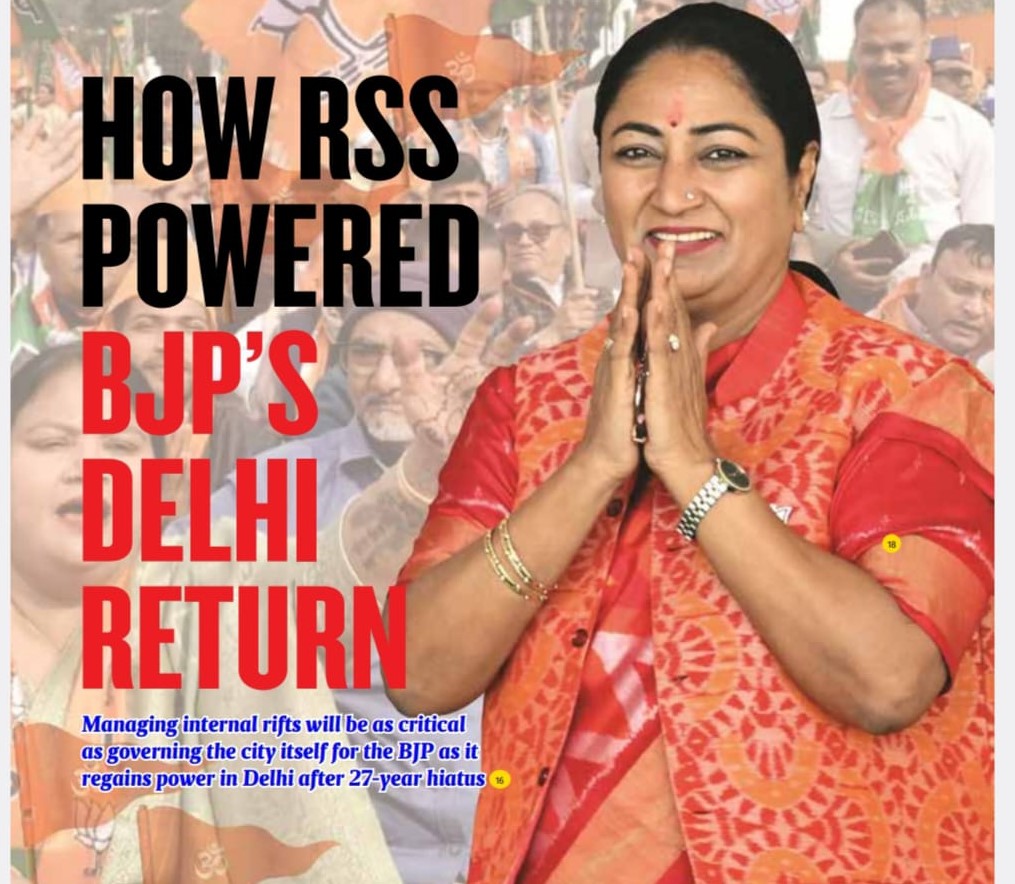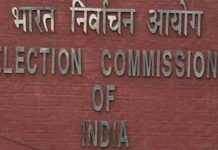
In recent years, the BJP has developed a knack for surprising political observers with its choice of chief ministers, be it in Chhattisgarh, Rajasthan, Madhya Pradesh, Gujarat, or Haryana, and the national capital is no exception. The selection of first-time MLA and former councillor Rekha Gupta disappointed prominent aspirants such as ex-MP Parvesh Verma and three-time MLA Vijender Gupta. Gupta’s appointment unfolds the strong influence of the Sangh Parivar. She honed her political skills within the Akhil Bharatiya Vidyarthi Parishad (ABVP), the student wing of the RSS.
Tehelka’s cover story, ‘How RSS Powered BJP’s Delhi Return’, delves into the challenges of managing internal party rifts while also effectively governing the city. After a 27-year hiatus, the BJP has reclaimed power in Delhi, a feat it has struggled to achieve despite holding power at the Centre and in over 20 states for the past 11 years under Prime Minister Narendra Modi’s leadership. The last BJP Chief Minister of Delhi, the late Sushma Swaraj, left office in December 1998. Since then, the party has failed to secure the Delhi Assembly, making this victory a significant milestone.
For the BJP, securing political dominance in the national capital was no easy feat. To ensure success, the BJP leadership—including Prime Minister Modi, party president JP Nadda, and Home Minister Amit Shah—strategically relied on the RSS and its dedicated cadre, mirroring their approach in the Maharashtra and Haryana Assembly polls. This strategic move appears to have rejuvenated the BJP machinery, which had shown signs of fatigue following its underwhelming performance in the 2024 Lok Sabha elections. Now, the party seems to be regaining its momentum.
Buoyed by the victory and her appointment, Rekha Gupta, in her maiden speech, promised to take Delhi to “new heights.” As the fourth woman chief minister of Delhi, she enjoys both a commanding two-thirds majority in the Assembly and the Centre’s full backing. However, fulfilling this promise will require more than rhetoric. Urgent action is needed to address critical issues such as air and water pollution, while also delivering on election promises, including welfare schemes that surpass those introduced by the previous AAP government. With BJP’s “double-engine” government overseeing both law and order and local administration, meeting these expectations will be a true test of its governance capabilities.
Meanwhile, for former Delhi Chief Minister and AAP convener Arvind Kejriwal, a significant player in the political landscape, speculation is rife that AAP may field one of its Rajya Sabha MPs in an upcoming Punjab Assembly by-election, to potentially pave the way for his transition to the Upper House. With AAP currently holding 10 Rajya Sabha seats—three from Delhi and seven from Punjab—the latter presents the most viable route for his entry. As AAP recently attained the status of a national party, securing a Rajya Sabha seat could bolster Kejriwal’s national influence. However, whether he will make this strategic move remains to be seen.












